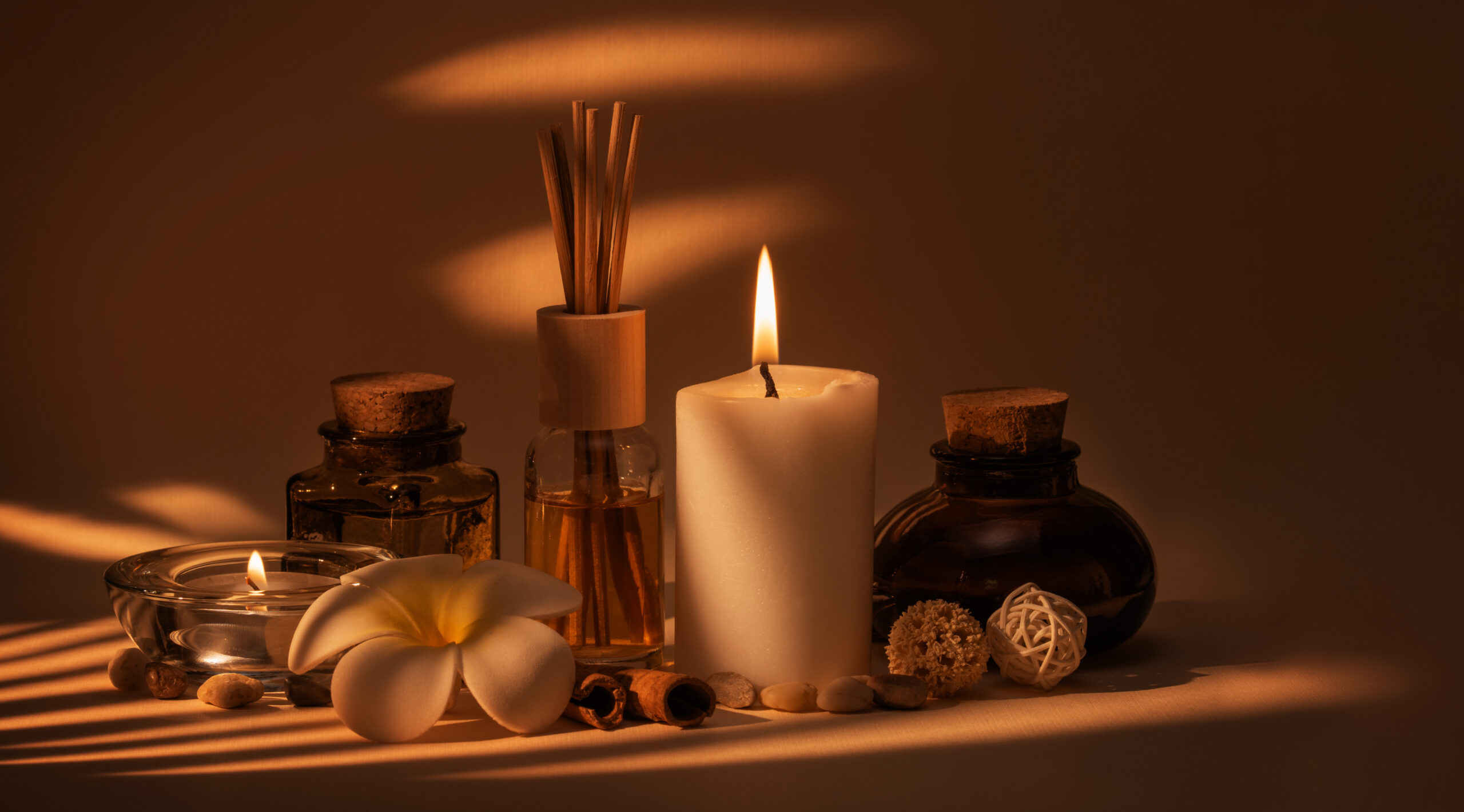
Photo copyright gudenkoa, via Adobe Stock.
To mark the appearance of Leonard Cohen’s “Begin Again” in our Summer issue, we’re publishing a series of short reflections on his life and work.
If apocalypse were at hand, would you choose to light a seventy-dollar Bois Cire scented candle by your bed and leaf through a Penguin Classics copy of George Herbert’s The Temple as the air conditioner ran on high, “Who By Fire” playing softly on your phone, the world slowly sifting itself down to ash? Some of us might. Some of us would. Leonard Cohen embraced the spiritual and the carnal, and his aching insistence on chasing pleasure at the edges of oblivion has made his voice ever more seductive—comforting, troubling—since his death in 2016.
That we are now at the edge of several oblivions needs no elaboration. The question of pleasure remains—what we might do with it, since we are all but numb to spectacular shock, and whether it can or should be comforting. I first heard Jeff Buckley’s version of “Hallelujah” as a teenager, before I heard Cohen’s original. At the time I preferred the cover; its beauty was immediate, seamless, intoxicating. But over time I’ve come to love Cohen’s churchly lounge act for the opposite reasons. There’s something uncanny in the synthetic sheen and gravel of Cohen’s track—a self-negating camp performance of spiritual grandeur that erases the line between rapture and sleaze.
And on the other side of pleasure—a luxury candle, poetry, air-conditioning—there is often both rapture and sleaze: tender depravity. How much of it are we willing to accept? A lot, maybe. While there’s a time for the sensuous charms of “Suzanne” and “So Long, Marianne,” I’ve always been drawn to the songs in which Cohen allowed himself to sound unhinged. In “Diamonds in the Mine” he is an unlikely vector of proto-punk rage, particularly at the end, as he genuinely screams his way through the final refrain—“And there are no letters in the mailbox / And there are no grapes upon the vine”—in an atonal vocal shred, his unfazed backup singers hoisting up the chorus’s sunny melody behind him, a spring breeze blowing through a nuclear meltdown. Amid the decadent, Oedipal party music of “Don’t Go Home With Your Hard-On,” he snarls, “It will only drive you insane / You can’t shake it or break it with your Motown / You can’t melt it down in the rain”—a meltdown of a different order.
He was fatalistic, but he wasn’t a nihilist. In a Leonard Cohen song pleasure comes at a price. In “Tower of Song,” he sings, “You can say I have grown bitter, but of this you may be sure / The rich have got their channels in the bedrooms of the poor / And there’s a mighty judgment coming—but I may be wrong.” You paid seventy dollars for that candle; you may as well take a big whiff as you burn it down. There is pleasure of the spirit and pleasure of the flesh, and here on Earth they are forever intertwined. Is that comforting? “You want it darker,” he intones on his final album, released just weeks before his death, “we kill the flame.” He is blowing out the candle and crooning us into the abyss as we try, in our way, to be free.
Daniel Poppick is the author of the National Poetry Series winner Fear of Description and of The Police.
from The Paris Review https://ift.tt/8lxZ17S
Comments
Post a Comment